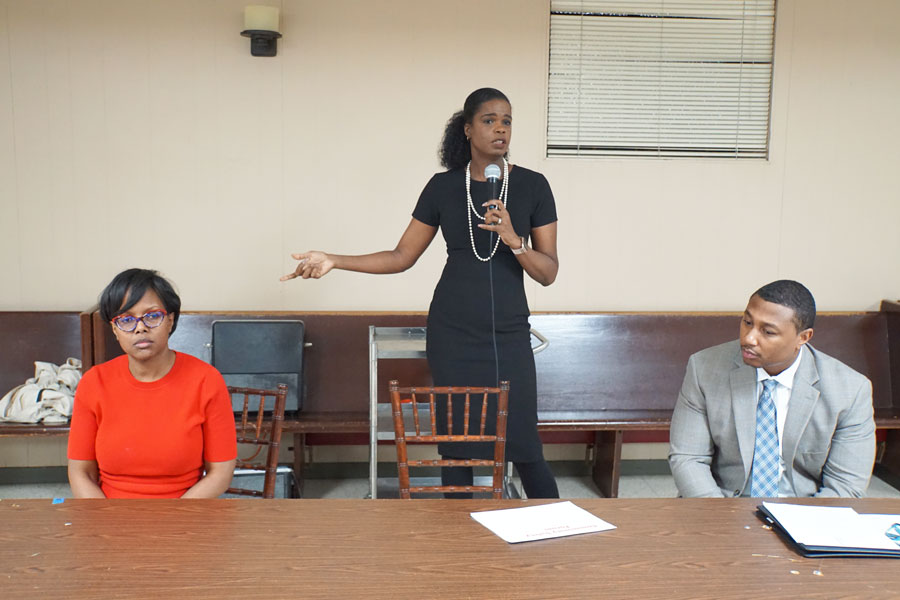Kim Foxx speaks at event about community safety, restorative justice
Owen Stidman/Daily Senior Staffer
Cook County State’s Attorney Kim Foxx. Foxx spoke at a Thursday event about restorative justice and equity within communities.
January 31, 2020
Cook County State’s Attorney Kim Foxx, Ald. Cicely Fleming (9th) and Nathan Norman, the interim program coordinator of Evanston’s Youth and Young Adult division, spoke to residents about the importance of restorative justice and community safety at a Thursday forum.
The event, hosted by The People’s Lobby, Reclaim Evanston and the Organization for Positive Action and Leadership, comes during Foxx’s run for re-election in a highly contested primary for the Cook County state’s attorney position.
She faces three challengers: former prosecutor Donna More, former Chicago Ald. Bob Fioretti and former Assistant State’s Attorney Bill Conway.
Throughout the race, the incumbent has faced scrutiny for her handling of the 2019 Jussie Smollett case, in which Smollett, an actor best known for his appearance on the show “Empire,” allegedly staged a hate crime. Foxx’s office dropped the charges in March 2019, an action which has been a constant source of criticism throughout her re-election campaign.
The panel focused on the role institutions can play in reforming and re-evaluating the criminal justice system to improve community inclusion and deal with racial inequities. Foxx’s prosecutorial record was not mentioned at the event.
She said safety doesn’t revolve around policing, but it is essential to cultivate systems that support all members of a community.
“The notion of safety is built around healthy, thriving communities,” Foxx said. “When people feel like their needs are being met, there’s less of a tendency for people to do things to meet those needs.”
Norman said this change begins in schools. In his division, he said he is actively seeking to reduce the school-to-prison pipeline by informing students of the possible consequences of their choices as well as teaching restorative practices.
However, Norman said the problem takes place at the institutional level as well. He said some of the patterns are perpetuated during training for police officers, which indicates a need for systemic change.
“We see young people being walked out of school in handcuffs, and this becomes normalized,” Norman said. “When the resource officer doesn’t utilize proper procedures, this becomes normalized. It institutionalizes our children to be okay with this.”
Fleming said the existence of an achievement gap and a racial disparity in disciplinary actions within schools are affected by choices at an administrative level. She said this can cause students to feel unwelcome in learning environments and lose a sense of community.
As a result, she said it is clear that city and school resources should shift their focus to uplift marginalized communities. She said this doesn’t always occur, citing the city’s lack of translations of documents for immigrants and Evanston/Skokie School District 65’s classroom policies for non-English speakers as indicators of a need for change.
“The idea that we all live here in diversity and everyone is equal — it’s not the treatment our children are getting in District 65,” Fleming said. “It’s not the treatment people are getting from the police.”
Foxx said this shift in mindset cannot only occur at the administrative level — instead, it is essential for the entire community to support marginalized communities and released inmates to reduce incarceration and recidivism rates.
“We have to wrap our minds around the idea that it is okay to deal with conflict outside the courthouse,” Foxx said. “That’s what restorative justice requires — community members who are proximate to these issues.”
Email: jacobfulton2023@u.northwestern.edu
Twitter: @jacobnfulton1





